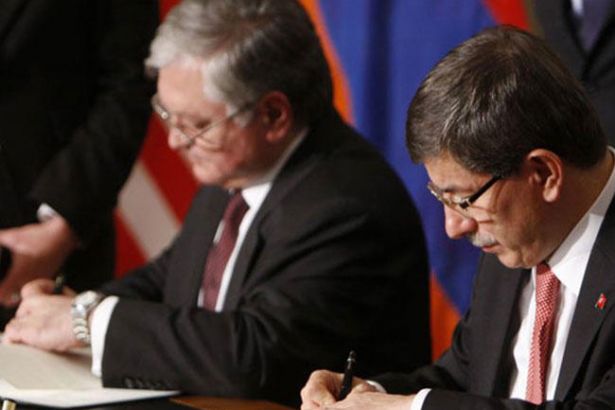Armenia scraps 'normalisation protocols' with Turkey

Armenian President Serzh Sargsyan announced Thursday the annulment of protocols on the normalization of Armenian-Turkish relations, which have been strained for years since First World War, the Armenian president's press service said.
The so-called Zurich Protocols signed by Yerevan and Ankara in 2009 were designed to open the Turkey-Armenia border and normalize diplomatic ties. The deal needed parliamentary approval in both countries, but was never ratified, and the Armenian and Turkish governments have since accused each other of trying to change the deal.
"As a result of discussions, President (Serzh) Sarksyan signed a decree and a national security council approved a procedure of annulling protocols which have been signed on October 10, 2009," the press service said in a statement.
The Armenia-Turkey border has been shut since 1927 - except for a very short period at the beginning of the 1990s.
The press service quoted Sarksyan as saying that Armenia did everything "not to leave the burden of the settlement of relations between Armenia and Turkey on the shoulders of future generations."
"But Ankara ... did not even make a single step towards ratification and implementation of protocols, but also left no doubt that it was not intending to do it," Sarksyan said.
He added that Armenia was ready to cooperate with Turkey in the future, if "there would be the same willingness from the Turkish side."
While addressing the UN General Assembly in September, Sargsyan said that Armenia would declare the protocols null and void by spring if there were no positive developments in their implementation. Yerevan has also accused Ankara of issuing unfounded preconditions for the ratification of the protocols.
The Turkish Foreign Ministry, in turn, refuted Armenia's claims, saying that they aimed to mislead global public opinion. The ministry stated Ankara's commitment to the main clauses of the protocols, adding that the protocols' ratification depended on Yerevan's ability to ensure a favourable political environment in the South Caucasus, particularly in the disputed Armenian-Azerbaijani region of Nagorno-Karabakh.
During World War I, the Ottoman council of ministers announce that all Armenians living near the battlefield zones in eastern Anatolia (under the Ottoman rule) will be deported to Syria and Mosul. Meanwhile, famine and disease killed many more people as the Ottoman Empire was ill-equipped to supply and transport its own armies, let alone handle large-scale deportations.



